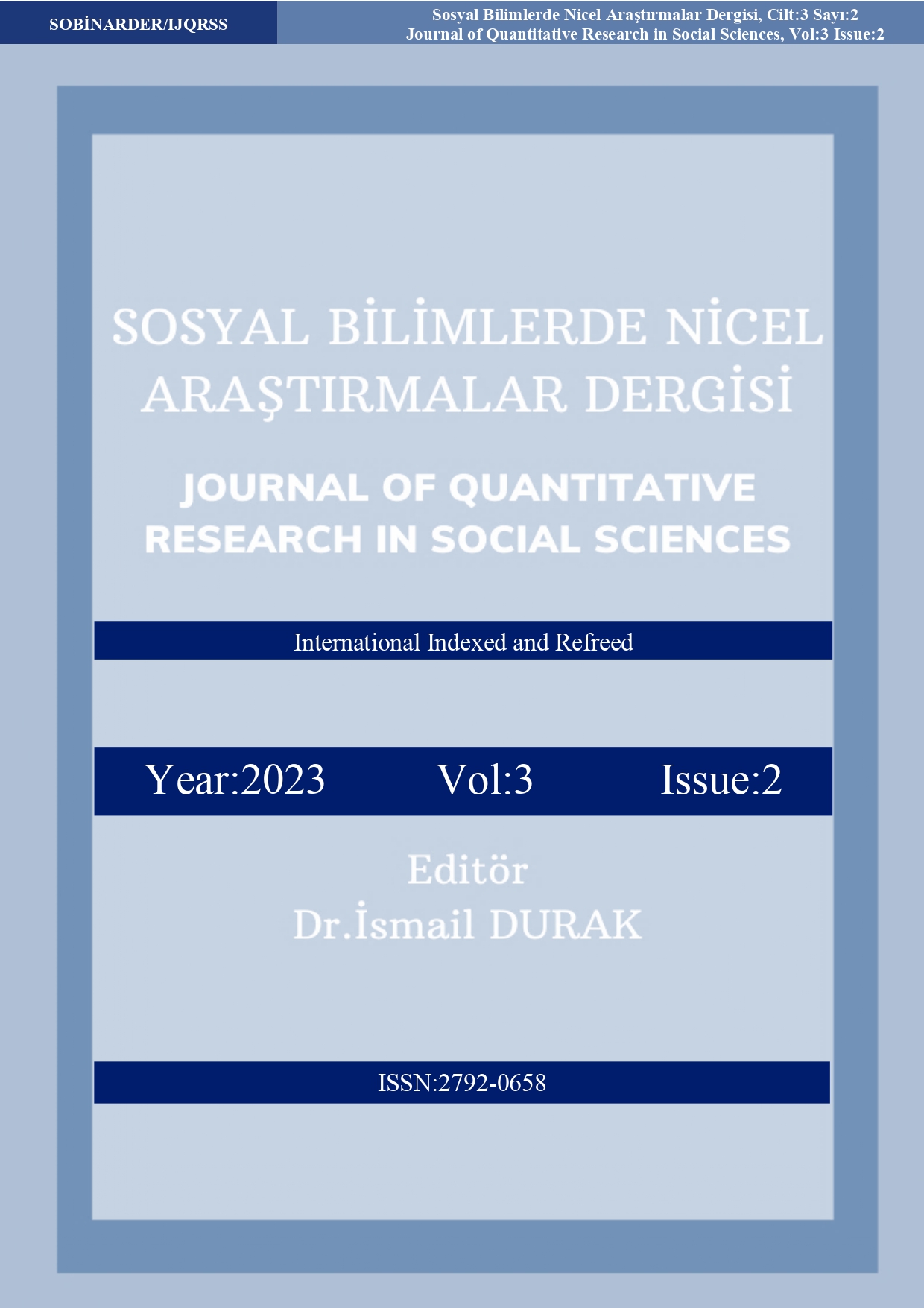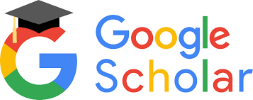A Adaptation of Artificial Intelligence Literacy Scale into Turkish
Yapay Zekâ Okuryazarlığı Ölçeğinin Türkçe’ye Uyarlanması
Keywords:
Artificial intelligence, artificial intelligence literacy, , literacy, scale adaptationAbstract
Artificial intelligence (AI) can be defined as a technological field developed to simulate, extend and improve human intelligence. We can say that the age we are in now is the age of AI. Knowing how to read and write no longer means literacy. This is manifested in the development of new types of literacy such as digital, media, environmental and financial literacy. In the AI age, it is very important for people to be AI literate and to know the requirements of this age. Although AI literacy is closely related to computer and digital literacy, it is different from them. Therefore, measuring people's AI literacy levels is important for both individual and society. Because today, there is no digital platform where AI technology is not integrated. AI literacy was conceptualized in 2022 and a scale was developed. However, there is no scale for Turkish. This study was conducted to adapt the AI literacy scale (YAPZEKO) for Turkish. The scale was adapted with the data collected from 536 people between the ages of 18-60 in Sivas province. As a result of the research, it was confirmed that the scale has a 4-dimensional structure explaining 92.24% of the total variance. Within the scope of the reliability study, it was found that the Cronbach's alpha (α) reliability coefficient was .939 and the indicators for confirmatory factor analysis were above the perfect limit. These results showed that the adapted scale is a valid and reliable scale that can be applied in the field of AI literacy. It is thought that the developed scale will fill the gap in the literature for Turkish and contribute to the realization of many studies.
Keywords: Artificial intelligence, artificial intelligence literacy, literacy, scale adaptation.
References
Arslan, Kürşat. 2020. “Eğitimde Yapay Zeka Ve Uygulamaları.” Batı Anadolu Eğitim Bilimleri Dergisi 11(1):71–88.
Bayık, Mehmet Emin, And Sait Gürbüz. 2016. “Ölçek Uyarlamada Metodoloji Sorunu: Yönetim Ve Örgüt Alanında Uyarlanan Ölçekler Üzerinden Bir Araştırma.” İş Ve İnsan Dergisi 3(1):1–20.
Carroll, Julia M., Andrew J. Holliman, Francesca Weir, And Alison E. Baroody. 2019. “Literacy Interest, Home Literacy Environment And Emergent Literacy Skills İn Preschoolers.” Journal Of Research In Readıng 42(1):150–61. Doi: 10.1111/1467-9817.12255.
Comrey, Andrew Laurence, And Howard Bing Lee. 1992. A First Course İn Factor Analysis, 2nd Ed. Second Edi. Hillsdale, New Jersey: Lawrence Erlbaum Associates.
Cordenonzi, Walkiria Helena, Jose Claudio Del Pino, Eniz Conceicao Oliveira, And Andreia Aparecida Guimaraes Strohschoen. 2020. “Lıteracy - An Evolutıon Of The Concept: Lıteracy And Code Lıteracy.” Texto Lıvre-Lınguagem E Tecnologıa 13(1):137–55. Doi: 10.17851/1983-3652.13.1.137-155.
Cronbach, Lee J. 1951. “Coefficient Alpha And The Internal Structure Of Tests.” Psychometrika 16(3):297–334. Doi: 10.1007/BF02310555/METRICS.
Gilster, Paul. 1997. Digital Literacy. New York SE: Wiley Computer Pub. New York.
Gökbulut, Bayram, And Ahmet Çoklar, Naci. 2018. “Investigation Of The Relationship Between Teachers’ Technology Use And Psychological Capital.” Journal 2(4):280–94.
Güler, Abdulkerim, And Yılmaz Günel. 2022. “A Scale Development Study On Cyberloafıng In Publıc Instıtutıons.” İşletme Bilimi Dergisi 10(2):247–74. Doi: 10.22139/JOBS.1147063.
Hair, J. F., Black, W. C., Babin, B. J. And Anderson, R. E. 2010. “Multivariate Data Analysis.” 785.
Hambleton, R. K. 1993. “Translating Achievement Tests For Use İn Cross-National Studies.” European Journal Of Psychological Assessment 9:57–68.
International Test Commission. 2017. “The ITC Guidelines For Translating And Adapting Tests (Second Edition).” Retrieved September 26, 2023 (Www.Intestcom.Org).
John Mccarthy. 2007. “What Is Artıfıcıal Intellıgence?” Retrieved September 20, 2023 (Https://Www-Formal.Stanford.Edu/Jmc/Whatisai/).
Karagöz, Yalçın. 2016. SPSS 23 Ve Amos 23 Uygulamalı İstatistiksel Analizler. Ankara. No. Ankara.
Karakuş, Sena, And Sinem Evin Akbay. 2020. “Psikolojik Esneklik Ölçeği: Uyarlama, Geçerlik Ve Güvenirlik Çalışması.” Journal 16(1):32–43.
Kartal, Mahmut, And Sait Bardakçı. 2018. SPSS Ve Amos Uygulamalı Örneklerle Güvenirlik Ve Geçerlik Analizleri (1. Baskı). Ankara. Ak. Ankara.
Lewis, Tanya. 2014. “A Brief History Of Artificial Intelligence.” Retrieved September 20, 2023 (Https://Www.Livescience.Com/49007-History-Of-Artificial-İntelligence.Html).
Özkan, Osman Seray, And Burcu Üzüm. 2021. “Sorumlu Liderlik: Bir Ölçek Uyarlama Çalışması.” Journal 19(4):199–212.
Park, Hyejin, Han Sung Kim, And Han Woo Park. 2021. “A Scientometric Study Of Digital Literacy, ICT Literacy, Information Literacy, And Media Literacy.” Journal Of Data And Informatıon Scıence 6(2):116–38. Doi: 10.2478/Jdis-2021-0001.
Polat, Murat. 2018. “DERSLERDE AKILLI TELEFON SIBER AYLAKLIĞI ÖLÇEĞI (DATSAÖ): ÜNIVERSITE ÖĞRENCILERI İÇIN BIR ÖLÇEK UYARLAMA ÇALIŞMASI.” SOCIAL SCIENCES STUDIES JOURNAL (Sssjournal).
Tatlı, Zeynep, And Hava İpek Akbulut. 2017. “Öğretmen Adaylarının Alanda Teknoloji Kullanımına Yönelik Yeterlilikleri.” Journal 18(1):31–55.
Toker, Türker, Zeynep Cömert, Sultan Edip, And Ergün Akgün. 2021. “Dıgıtal Competency Scale For Educators: Adaptatıon, Valıdıty And Relıabılıty Study.” Journal 50(230):301–28.
Velardo, Stefania. 2015. “The Nuances Of Health Literacy, Nutrition Literacy, And Food Literacy.” Journal Of Nutrition Education And Behavior 47(4):385-389.E1. Doi: Https://Doi.Org/10.1016/J.Jneb.2015.04.328.
Wang, Bingcheng, Patrick Rau, And Tianyi Yuan. 2023. “Measuring User Competence İn Using Artificial Intelligence: Validity And Reliability Of Artificial Intelligence Literacy Scale.” Behaviour & Information Technology 42(9):1324–37. Doi: 10.1080/0144929X.2022.2072768.
Downloads
Published
How to Cite
Issue
Section
License
Copyright (c) 2024 Journal of Quantitative Research in Social Sciences

This work is licensed under a Creative Commons Attribution-NonCommercial 4.0 International License.
Telif hakkı hakkında










